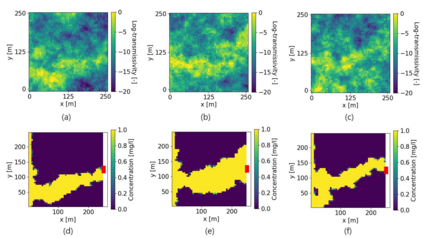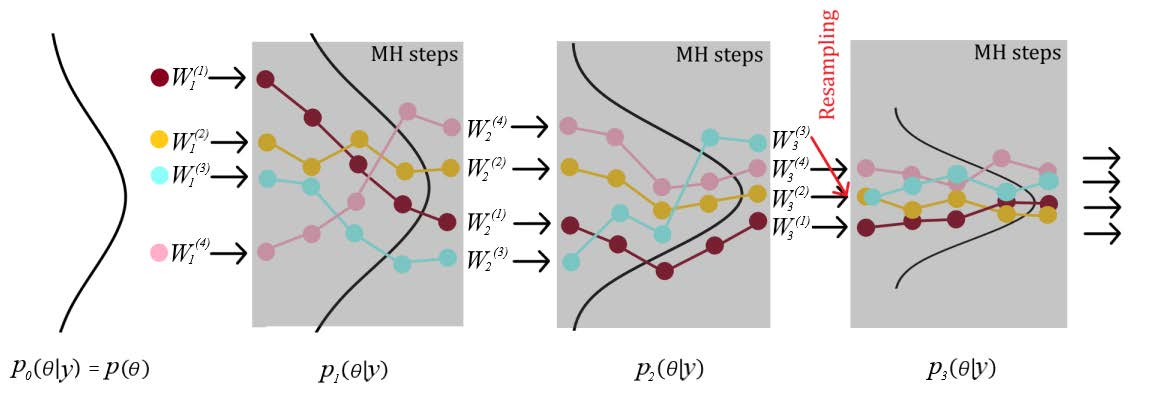Bayesian inversions followed by estimations of rare event probabilities are often needed to analyse groundwater hazards. Instead of focusing on the posterior distribution of model parameters, the main interest lies then in the distribution of a specific quantity of interest contingent upon these parameters. To address the associated methodological challenges, we introduce a two-stage Sequential Monte Carlo approach. In the first stage, it generates particles that approximate the posterior distribution; in the second stage, it employs subset sampling techniques to assess the probability of the rare event of interest. By considering two hydrogeological problems of increasing complexity, we showcase the efficiency and accuracy of the resulting PostRisk-SMC method for rare event probability estimation related to groundwater hazards. We compare the performance of the PostRisk-SMC method with a traditional Monte Carlo approach that relies on Markov chain Monte Carlo samples. We showcase that our estimates align with those of the traditional method, but the coefficients of variation are notably lower for the same computational budget when targeting more rare events. Furthermore, we highlight that the PostRisk-SMC method allows estimating rare event probabilities approaching one in a billion using less than one hundred thousand forward simulations. Even if the presented examples are related to groundwater hazards, the methodology is well-suited for addressing a wide range of topics in the geosciences and beyond.
翻译:暂无翻译














